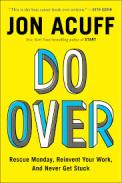 Social media (SM) has, in recent times, established itself as a force in modern society that will not go away. When something significant happens in the world, you can bet that one or more social media outlets will be talking about it immediately, often faster than traditional forms of print, radio, and television (if you’re not sure about this, check out this article about the death of Whitney Houston). As a result, people have an unparalleled ability to interact with each other in ways beyond a simple phone call. Postings can be rich with multiple forms of media (pictures, links, audio clips, etc.) and can reach around the world multiple times in their lifespan.
Social media (SM) has, in recent times, established itself as a force in modern society that will not go away. When something significant happens in the world, you can bet that one or more social media outlets will be talking about it immediately, often faster than traditional forms of print, radio, and television (if you’re not sure about this, check out this article about the death of Whitney Houston). As a result, people have an unparalleled ability to interact with each other in ways beyond a simple phone call. Postings can be rich with multiple forms of media (pictures, links, audio clips, etc.) and can reach around the world multiple times in their lifespan.
With great power, however, comes great responsibility. A single posting or comment has the potential to be used for good—or for more nefarious things. This, for some reason, seems to be an issue with followers of Jesus, and even the most well-intentioned folks can give him a black eye or two through their words. James put it well when he compared our speech (or shall we add ‘keyboard usage’) to a spark that sets off a forest fire: “By our speech we can ruin the world, turn harmony to chaos, throw mud on a reputation, send the whole world up in smoke and go up in smoke with it, smoke right from the pit of hell” (James 3:6 Msg).
Those are stinging comments that should not be overlooked by anyone, from the newest Christian to the pastor of a long-established congregation. Christians are supposed to lead from the forefront by their example, not react in ways that belittle and divide. As a result, there are a number of procedures I try to follow whenever I add anything to the world of social media. I heartily encourage you to add to these in the comment section, since I know I’m going to forget something:
* Social Etiquette 101
When commenting or posting, it’s important to make sure to follow basic rules and procedures in order to make sure your voice is heard properly:
A) If a comment is directed at someone, use the @ symbol to designate who you’re talking to. Otherwise, the assumption is that the comment is for everyone. I’ve even used @Everyone: when directing discussions that have gone off-topic or have become heated.
B) Make sure to use your best grammar and spelling skills in all posts and comments. Otherwise, you can delete the post/comment and try again (with Facebook, you can edit comments using the pencil icon at the right of the post—but you can’t do this on phones yet (I’m sad about this). It bothers me to make a mistake, so I will make a second comment stating the correction, then make the changes when I can get to a regular computer, deleting the correction notice). It doesn’t take long to do a simple check before submitting something.
(Example: “I couldn’t breath.” – Incorrect | “I couldn’t breathe.” – Correct)
C) Writing an entire post or comment in all capitals is verboten. Don’t do this—ever! Not only is it universally considered shouting, it’s an easy way to not only get your message skipped or ignored, but can also get any future posts and comments blocked by people who might need to hear them. When you consider using all capitals for part of a comment, think about how others will read and react to it. There are other ways to emphasize a point. I rarely will use capitals, but *will* put words in asterisks to make a point (see what I did there?).
(Note: The same goes for overt use of punctuation. One exclamation mark or question mark is fine. Thirteen is way too many [and improper grammar, to boot])
D) Emoticons are okay to use and can be used to help another person understand intended sarcasm or happiness. Just don’t overuse them!
(Example: You don’t really need that. 😉 | You don’t really need that. )
* Verify Your Sources (if applicable)
When in the heat of the posting moment, sometimes rationality is the first thing that gets lost. If you quote a source about something, verify it beforehand. The same goes for statistics. Otherwise, you risk someone else reacting to misinformation and passing it on to their network, starting a chain reaction that is difficult to stop. You should also have snopes.com on Internet speed dial and should use it in every circumstance possible.
* Know How to Defuse Potential Issues
Some of us have a deep inclination to attempt to start discussions on controversial topics (politics, for example) or enjoy adding fuel to an already raging inferno. It’s okay to discuss these things, but be ready to tone it down a notch if it seems that things are spiraling out of control. Discussions and even personal attacks can be handled in a loving and prayerful manner, becoming valuable ways to bring someone closer to God. Really, they can. Know how to make it happen. And remember what James had to say!
* Watch Those Forwards, Reposts and Retweets!
One of the more subtle problems online involves resending material that may or may not be true. After checking with Snopes, consider whether if posting such material is going to encourage, build up, annoy, or start a heated flame war. I personally find reposts (on Facebook specifically) to be lazy, guilt-inducing, inaccurate, and, most of the time, simply not useful. Specifically guilty are those ‘pictures’ that are simply words or stories with a “Repost this” or “99% of you won’t have the guts to repost” comment. As a result, people who pass these on to me are often blocked from posting future items to my News Feed. On Twitter, it’s not as a big deal, since links a the prime form of communication—but it’s still important to check them before sending out a retweet. Consider who the post was sent by as well—we all know those who we can trust.
* Threadjacking and Spamming are No-Nos
The word threadjacking refers to interrupting a comment stream in order to post something completely unrelated. For example, if a number of comments are discussing the fastest car on the market today, a threadjacking comment would be, “Black Friday is the absolute worst day of the year to go shopping for bedding.” It’s annoying at best and, if constantly done, can lead to others blocking your posts and future comments. Spamming, on the other hand, is threadjacking intended to promote a cause or group. To me, this is the bigger issue.
An example of the latter: I routinely ask questions on my Facebook page in order to generate discussion. A few days ago, I inquired which of the seven dwarfs from Snow White people related to the most. After three good replies, a fourth popped up that said (in essence): “I don’t relate to any of them. However, I do relate to this band!” It was followed by a link to the band’s home page. Thankfully, the next few comments returned to the question at hand. When I asked for the spamming to stop, the offender replied, “That’s the best part of Facebook—free speech!” They were correct, but not within a thread they had no reason to spam. Causes on FB can be promoted in separate posts with no issues whatever. A page can even be set up for them. But they have no place in an organized conversation. And yes, the result was a blocking of the offender.
* Dirty Laundry Stays in the Hamper
When people get emotional, they can be somewhat irrational about the things they post. There are places to handle situations that are of a personal nature. Social Media is not one of them (note the word ‘Social’ in the title). When dirty laundry gets aired, it happens in one of two ways:
A) A massive avalanche of pain and frustration comes out, burying anyone who reads it.
B) Vaguebooking occurs. If you’re uncertain about that term, vaguebooking refers to posts that are general enough not to say anything yet are intended to make someone post “Huh?” in an attempt to provide a reason to share the dirty laundry. An example would be, “One of the worst days of my life” or “Needing to go for a long drive in my car.”
The best thing to do, if you’ve got laundry to air, is to avoid SM entirely and go right to the source to deal with it. Asking for prayer is cool, but you should be guarded in any responses. If you’re reading the post, be careful with your words and comments (if you so choose to respond). Requesting for the poster to delete the post is fine (which they should do), but please be respectful in asking. If you can ask in ways other than through a SM post everyone can read, that would be the best. Your well-intentioned comment could be viewed the wrong way by people and subject you to negative comments.
* Images Have Rights, Too
One of the recent trends in social media circles is the proliferation of images that are copyright protected on people’s accounts. Admitted, a large part of what is on Facebook and Pinterest is cannibalized by others—this makes original material a premium you should take advantage of. However, if an image has an obvious copyright notice on it, you shouldn’t post it on your feed. This goes for comics out of newspapers as well—no matter how interesting or timely they are.
But just because an image doesn’t have a notice on it doesn’t mean it’s necessarily okay to use. There is a principle called Fair Use that dictates what images are okay to use and in what particular situations (a good explanation can be found here). It’s pretty tricky to tell what’s acceptable, even for bloggers. Simply put, if you got the image (or article) from a certain site, it’s common practice to give the site credit for the item in the form of a thank you or a hat tip (sometimes abbreviated as h/t). Err on the side of caution, though. And ask yourself, “If that image was mine, how would I feel about people reposting it without giving me credit?” It’s a great example of the Golden Rule Jesus shared.
* The Sword Works Both Ways
Christians have an uncanny ability to encourage someone who is down with a well-timed verse of Scripture (or one of those ‘word pictures’ I mentioned above that doesn’t say ‘Repost this’). At the same time, they’re able to hurt and do worse things through untimely usage of Scripture.
I know. I’ve done it myself. One person who was struggling got a verse in 1 Timothy from me a number of years ago that said, “You were running the race so well. Who cut in on you and led you from the truth?” Sadly, that person wasn’t seen at church after that. The sword worked both ways.
So when using a Scripture passage, consider the potential ramifications of it (and, if the post will be sent out en masse, how others will react). Then select accordingly or comment in a more appropriate matter.
Also, contrary to popular belief, you don’t have to use a Scripture reference in every sentence. Many people will skip over them anyway (sadly). Instead, it may be better to paraphrase the idea in an impactful manner.
* Reread Your Comment
Too often, people tend to respond or post out of sheer emotion or, even worse, from the wrong mindset (jealousy, anger, hatred, judgmental attitudes, etc.). Get in the habit of giving your comment or post a quick reread to make sure it says what you intend it to say.
* Pray About the Comment
Again, this should be a standard thing to do. Whether it’s for a particular person, the group reading it, or someone who may see it randomly, you owe it to them to pray.
* Count to Ten
Sadly, SM doesn’t have the luxury of an undo feature (such as Gmail has with its ten-second option to undo the sending of an email) once something is sent. Sure, you can delete it if you’re quick enough, but you never know if, in those few seconds, someone saw the post. Why not avoid the sinking feeling in your stomach by counting to ten (maybe twenty?) before releasing your words into cyberspace?
* Keep Exercising
Simply put, don’t run away from the world. Instead, keep an open eye on current events through the lens of the Bible. Get educated about issues from a non-biased standpoint if possible (and that may not be an option these days). I only post about current events if I can validate the source from at least two (2) sources. It eliminates a good percentage of bias, but also establishes credibility on my part.
* Do it for Love
Remember why you’re here. Don’t withhold good from those who deserve it when you have a chance to do something about it. Share in love. Remember that potentially millions of eyes are watching your words and (fairly or not) judging you on them. Make them count!
Social Media is great, but it’s not as easy to use as people like to think. It can, however, be an incredible ally in making the Jesus of the Bible known to the world.
What do you think? Any suggestions/tips you can add? Do you think I’ve completely lost it? Comment away!
 I’ve always had an admiration for Bill Watterson and the often true-to-life hijinks captured in the Calvin and Hobbes comic strip. One such comic (September 17, 1992) features an attempt by Calvin to teach his stuffed tiger how perspective affects other people’s thoughts. In this case, he begins discussing photography and pictures: “[People] think the camera is a dispassionate machine that records only facts. But really, cameras lie all the time! Select the facts and you manipulate the truth!” As evidence of this, Calvin suggests that Hobbes take a picture of him sitting on his bed. However, he’s manipulated the situation so that half the bed is cleared off but the other half isn’t. All Hobbes has to do, after taking the photo, is to crop out the mess to make it look like he keeps things neat.
I’ve always had an admiration for Bill Watterson and the often true-to-life hijinks captured in the Calvin and Hobbes comic strip. One such comic (September 17, 1992) features an attempt by Calvin to teach his stuffed tiger how perspective affects other people’s thoughts. In this case, he begins discussing photography and pictures: “[People] think the camera is a dispassionate machine that records only facts. But really, cameras lie all the time! Select the facts and you manipulate the truth!” As evidence of this, Calvin suggests that Hobbes take a picture of him sitting on his bed. However, he’s manipulated the situation so that half the bed is cleared off but the other half isn’t. All Hobbes has to do, after taking the photo, is to crop out the mess to make it look like he keeps things neat.

 “A.D. The Bible Continues” premiered last Sunday and did quite well in the ratings. In fact, it was the highest rated show on television on Easter and even found itself as the #1 trending topic on Twitter (#ADTheSeries). One unique thing the producers of the show are trying is a web-only companion program called “Beyond A.D.” It’s filmed every Tuesday night in Valencia CA for the next 11 weeks and is similar in style to “The Talking Dead,” a webshow for “The Walking Dead” (Note: if you’re in the area and want to be in the studio audience, let me know, as I can get you a link for tickets). Each half-hour episode will feature a faith based guest, a celebrity, and a musical act. Hosting the show is Jason Kennedy from E!.
“A.D. The Bible Continues” premiered last Sunday and did quite well in the ratings. In fact, it was the highest rated show on television on Easter and even found itself as the #1 trending topic on Twitter (#ADTheSeries). One unique thing the producers of the show are trying is a web-only companion program called “Beyond A.D.” It’s filmed every Tuesday night in Valencia CA for the next 11 weeks and is similar in style to “The Talking Dead,” a webshow for “The Walking Dead” (Note: if you’re in the area and want to be in the studio audience, let me know, as I can get you a link for tickets). Each half-hour episode will feature a faith based guest, a celebrity, and a musical act. Hosting the show is Jason Kennedy from E!.




